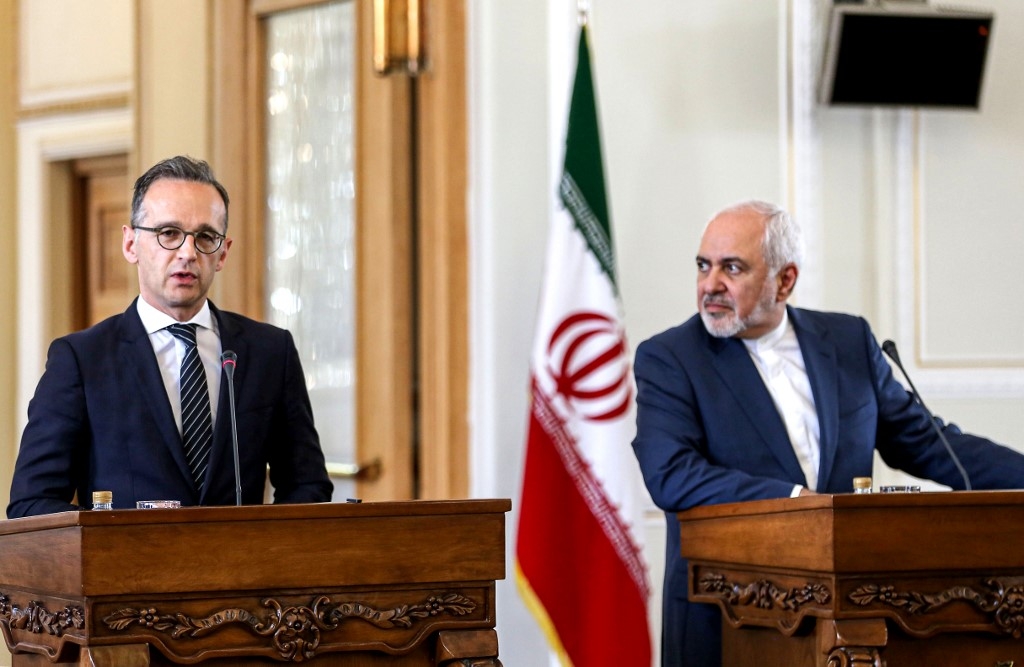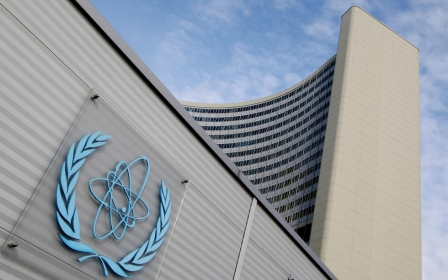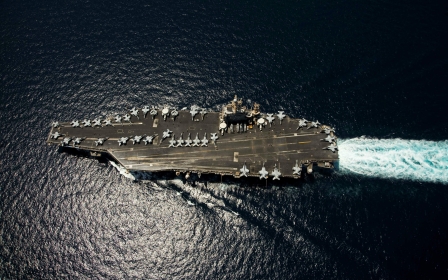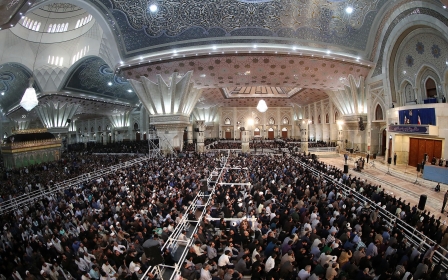Zarif: Those waging 'economic war' against Iran can't expect to remain safe

Iran's Foreign Minister Mohammad Javad Zarif warned on Monday that those waging "economic war" against Tehran through US sanctions could not expect to "remain safe".
The only way to decrease tensions in the region is to stop the economic war
- Iranian Foreign Minister Javad Zarif
"One cannot expect an economic war to continue against the Iranian people and that those waging this war and those supporting it remain safe," he said at a Tehran news conference with his visiting German counterpart Heiko Maas.
"The only way to decrease tensions in the region is to stop the economic war," he said, adding that Germany and the EU had an "important role" in such efforts.
The two met to discuss the future of the landmark nuclear deal which Iran signed in 2015 with China, Russia, Germany, Britain, France and the United States, leading to sanctions relief in exchange for Tehran curbing its nuclear programme.
New MEE newsletter: Jerusalem Dispatch
Sign up to get the latest insights and analysis on Israel-Palestine, alongside Turkey Unpacked and other MEE newsletters
US President Donald Trump has imposed sweeping sanctions on Iran after walking away from the deal last year.
On 8 May, Iran retaliated by saying it no longer considered itself bound to keep to the limits of stocks of heavy water and enriched uranium that were agreed as part of the deal.
Iran has also warned that it will stop abiding by the limits next month unless European countries speed up their work to mitigate the impact of US sanctions.
European mechanism still not operational
International Atomic Energy Agency director general Yukiya Amano said on Monday that Iran has followed through on its threat to accelerate production of enriched uranium, but declined to elaborate on the rate of production.
"I... hope that ways can be found to reduce current tensions through dialogue," Amano told the agency's quarterly board of governors meeting.
Europe has responded to the US withdrawal by setting up a special trade mechanism called INSTEX that would allow legitimate trade with Iran to continue without falling foul of US sanctions. However the mechanism, launched in January, is still not operational.
Ahead of the meeting with Zarif, Maas acknowledged that the economic benefits Tehran hoped for from the deal were now "more difficult to obtain" but urged Iran to fully respect the agreement.
'We fear that isolated events could trigger developments that end in violence'
- German Foreign Minister Heiko Maas
"Together with Germany and the European Union, we have a common goal: to maintain (the nuclear agreement), put an end to tensions and conflicts in the region and (allow) the Iranian people to economically benefit (from this agreement)," he said.
The German minister said his country would do its utmost to ensure tensions do not escalate.
"There is war in Syria and in Yemen, fortunately not here," Maas said. "We want to do everything we can to keep it that way" for Iran.
"Tensions here in the region are worrying, and we fear that isolated events could trigger developments that end in violence, and we want to prevent this at all costs."
Middle East Eye delivers independent and unrivalled coverage and analysis of the Middle East, North Africa and beyond. To learn more about republishing this content and the associated fees, please fill out this form. More about MEE can be found here.




